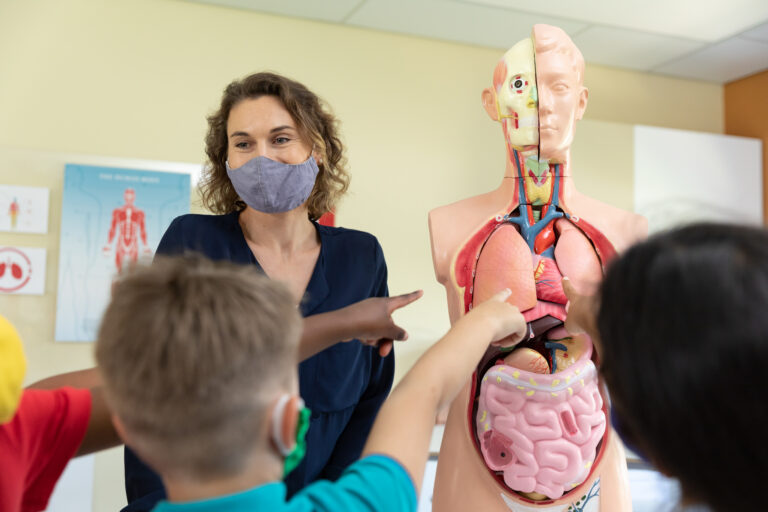Heartbreaking stories of sexual harassment and sexual assault…
…have been flooding social media. Some stories share details, but many more are simple declarations of a shared experience. The sheer volume is sobering and points to the horrifying truth: Sexual harassment and assault are everywhere. #MeToo is born.
- More than 50 percent of women and nearly 20 percent of men reported at least one incident of sexual harassment during one 12-month study period.[1]
- Every 98 seconds, an American is sexually assaulted. And every 8 minutes, that victim is a child.[2]
Yes, sexual harassment and sexual assault can happen to both males and females, and it’s wrong no matter who is harmed. The fact is that females are disproportionately targeted in large part due to the way we are socialized into prevailing gender roles and norms that support males treating females as objects for personal gratification. If we are going to alter these facts, it is important to learn new, healthier ways of relating to each other.
Sadly, many of the #MeToo stories point to abusive incidents that occurred in adolescence. This means we need to equip children to avoid sexual harassment and sexual assault long before we think they are ready to learn about these topics. Teaching children what they need to know and do can be done in gentle, positive, and age-appropriate ways.
Preventing more #MeToo incidents…
We can prevent more children from abusing and being abused, but it will take hard work:
- Prepare children to appreciate the normal, natural changes that will take place as they develop into adults. When we have repeated talks about puberty and sexuality, and answer the many questions children have about these topics, we remove the silence and stigma that surrounds puberty and sexuality. In doing so, we reduce the likelihood that children will feel shame and keep secrets if they experience unwanted touch or coercion.
- Encourage children to develop body autonomy. Allow them to decide if and when to allow others to touch, hug, or kiss them. Teach them to respect the personal space of others.
- Promote respect for diversity. Each person is a unique individual who develops in their own timing. Children who are “early bloomers” are more likely to be the targets of unwanted sexual attention than those who develop later. While curiosity is normal, it isn’t okay to touch or look at the private parts of someone’s body without their permission.
- Model healthy, respectful relationships. Children watch the adults in their lives and accept what they see and hear as normal. We can show children the way to treat ourselves and others with respect.
- Teach the skills needed to communicate assertively, listen actively, voice personal boundaries, and request adult help. Schools can provide ideal conditions for students to learn and practice these vital skills with their peers in a safe classroom environment. Puberty: The Wonder Years teaches these skills in lessons for students in grades 4, 5, and 6, arming children with positive relationship skills for life.
- Teach about consent: a clear, voluntary agreement to do something. Consent involves asking someone for what you want and accepting their answer. It involves saying yes or no in response to someone’s request. Consent can be taught and practiced in everyday situations, such as asking to use a cell phone or borrow a pencil. Then, consent will become a natural part of all aspects of relationships. Many tools are available to teach consent. This is a partial list:
- “What Is Consent” article for adults
- “Consent for Kids” video for elementary students
- “Consent Explained” video for 10- to 14-year-olds
- “Saying Yes or No: What Is Consent?” video for 10- to 14-year-olds
- “Sandwich Consent” video for middle school and older
- “Tea Consent” video for high school and older
- Explain sexual assault. No one wants to have this conversation with a child, but given the staggering numbers of children and youth who have been assaulted, this is a vital conversation. Amaze.org created the video, “What Is Sexual Assault?” to help adults talk to 10- to 14-year-olds.
Finally, in spite of every effort to prevent sexual harassment and sexual assault, some young people will be targeted for this abuse. It is important that adults forge trusted, respectful, and supportive relationships with the children in their lives so children have someone to turn to if they need help. When a young person tells you they have been sexually harassed or assaulted, it is important to respond supportively. Tell them…
- I believe you.
- It is not your fault.
- I will help you get some help.
Puberty: The Wonder Years teaches the following topics and skills…
needed to avoid or respond to sexual harassment and sexual assault:
- Ways to communicate with parents and other trusted adults
- Sex roles, expectations, stereotypes, and the limitations imposed by them
- Respect for all individuals, including their unique characteristics and rates of development
- Communication with peers that demonstrates respect and empathy
- Critical media literacy to counteract misleading sexual messaging
- Characteristics of healthy versus unhealthy relationships
- Ways to show affection that demonstrate respect
- Responses to disrespectful behavior
Sign up to receive a FREE sample lesson to see what Puberty: The Wonder Years is all about.
Learn more:
- Teaching Consent: Lessons for Young Children
- This is How You Teach Kids About Consent
- Ages and Stages of Healthy Childhood Sexual Development
- Read or listen to a radio interview about Sexual Harassment and #MeToo
- Rape and Consent Explained in 7 Simple Comics by Alli Kirkham
- How to Protect Students from Sexual Harassment: A Primer for Schools
- Sexual Harassment at School
- National Sexual Assault Hotline: 656.HOPE (4673)
- Rape, Abuse & Incest National Network (RAINN)
- Stop It Now
- Safe Horizon
Statistics:
- Equal Employment Opportunity Commission (EEOC)
- Social Psychological and Personality Science, MSU study
[1] Study finds gender differences related to sexual harassment
[2] Rape, Abuse & Incest National Network (RAINN)



